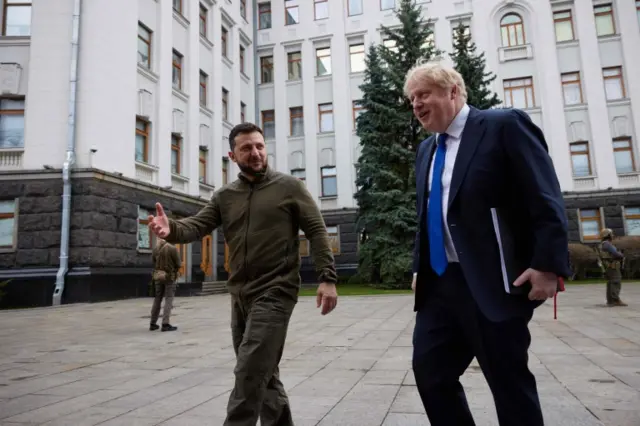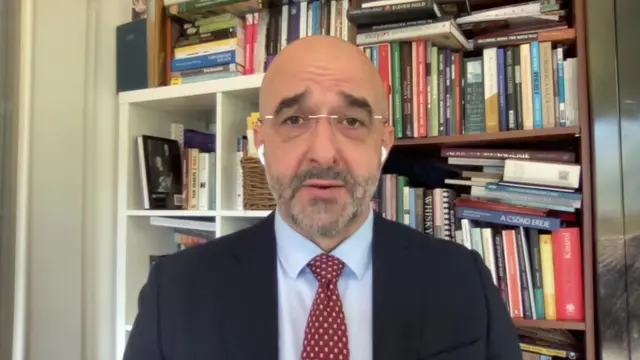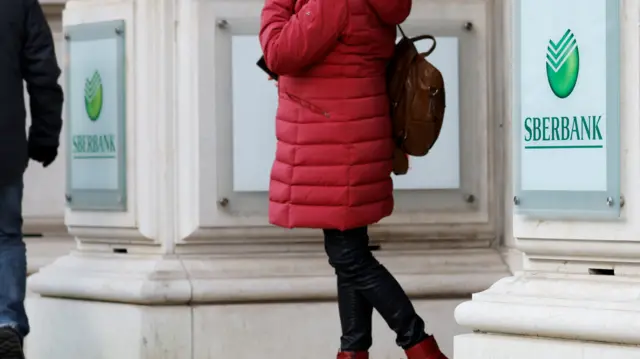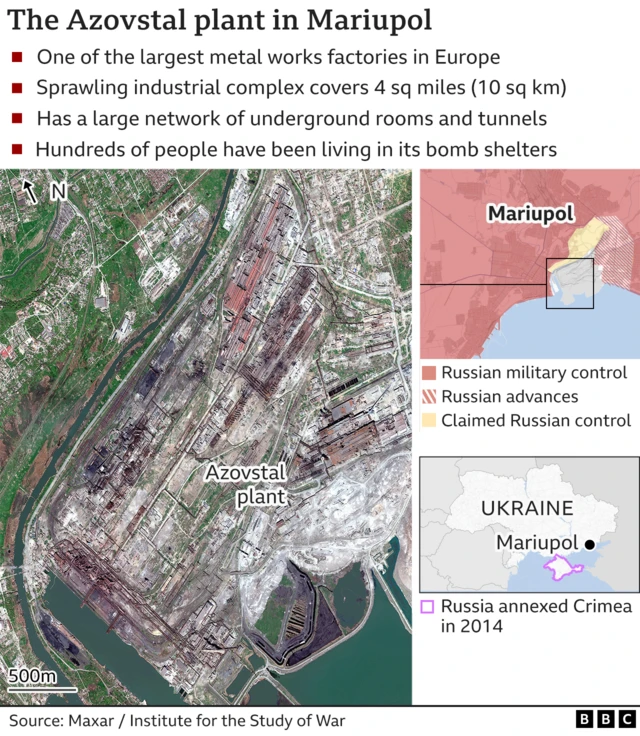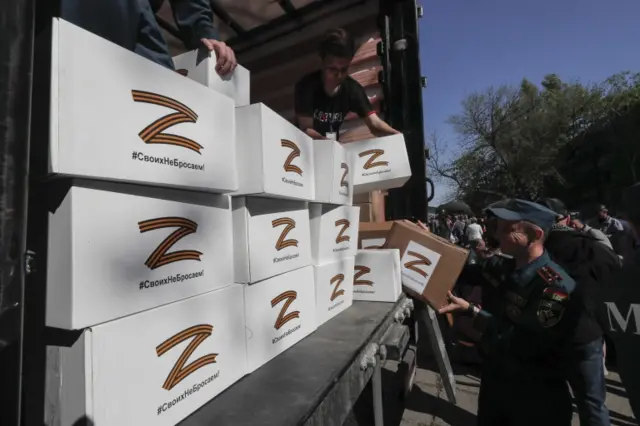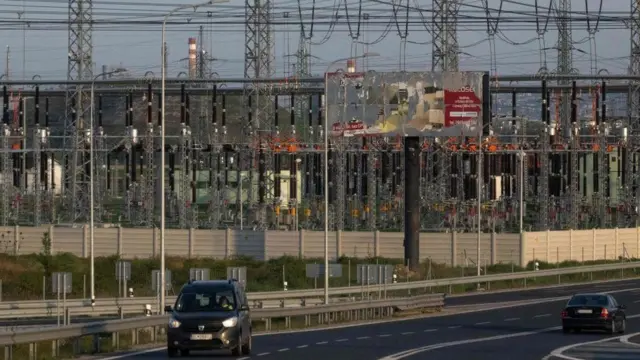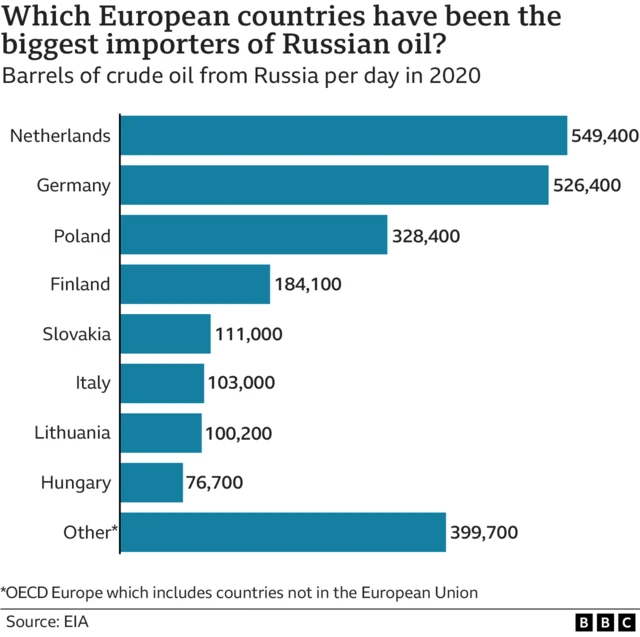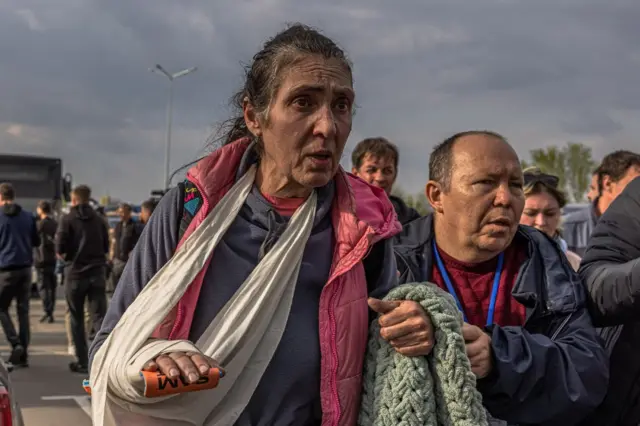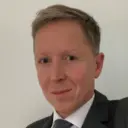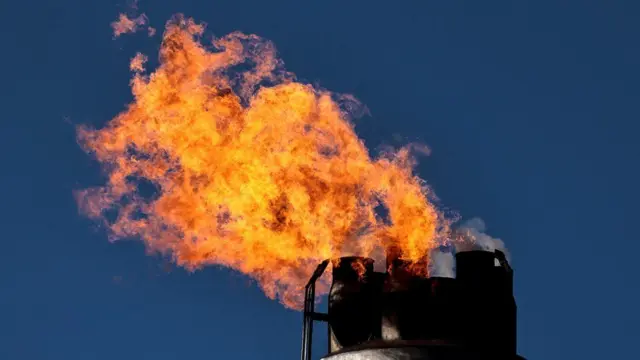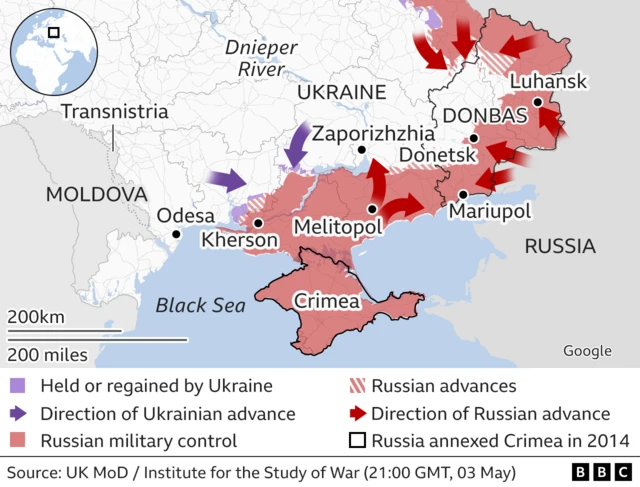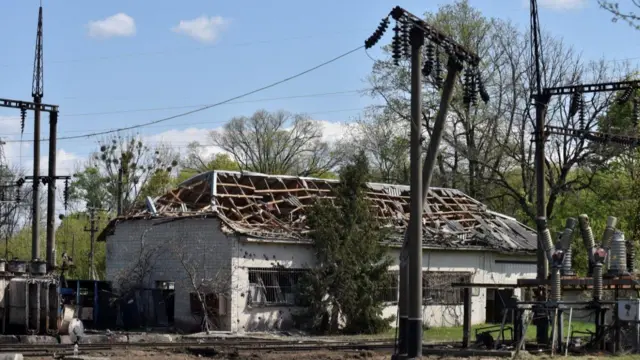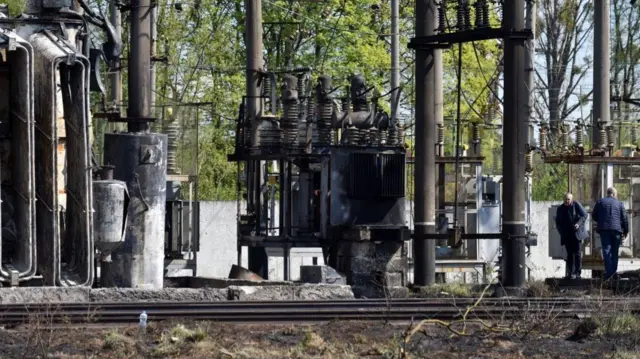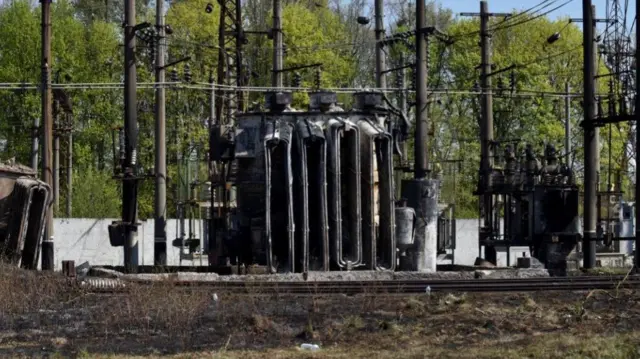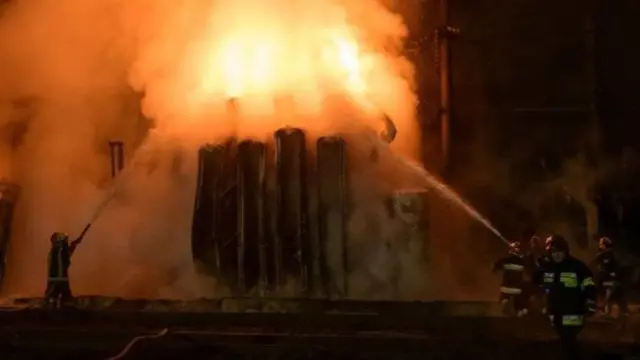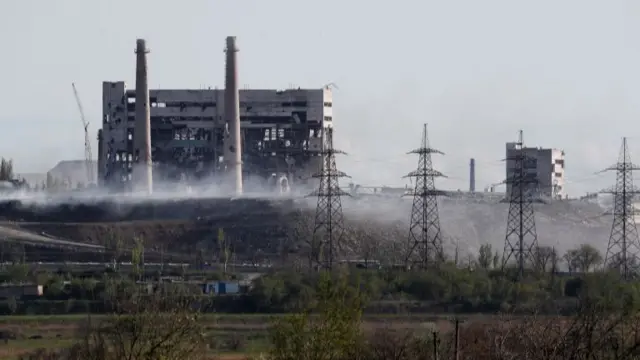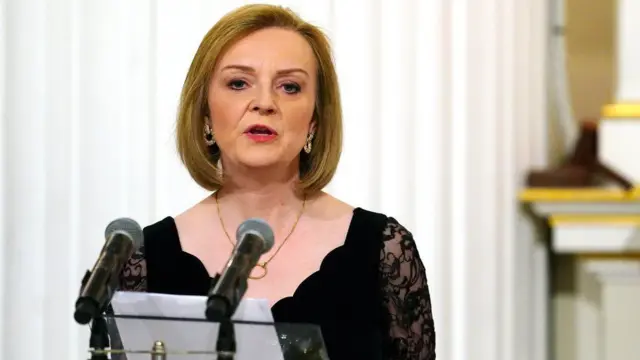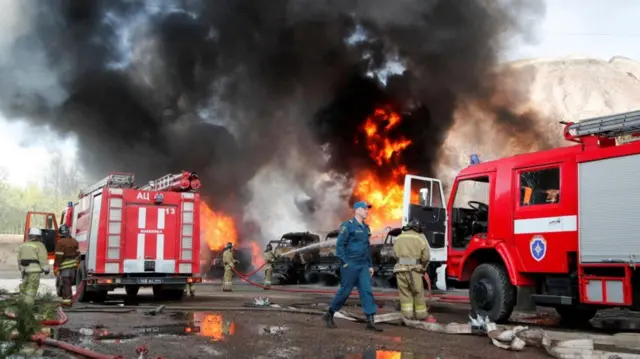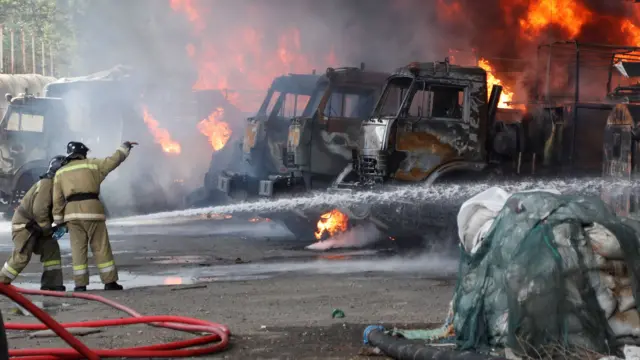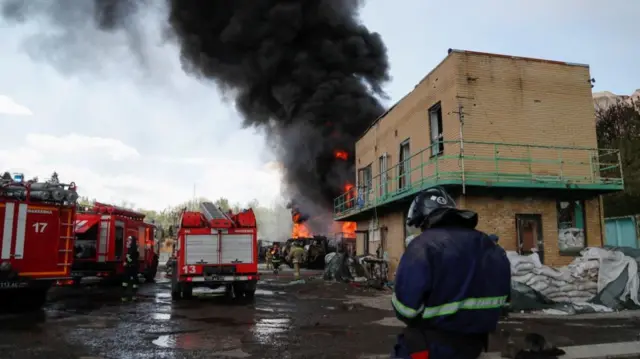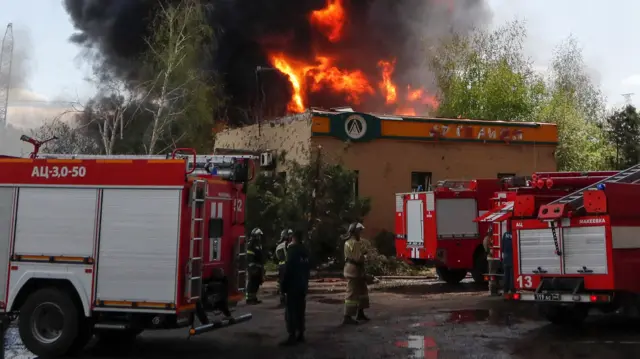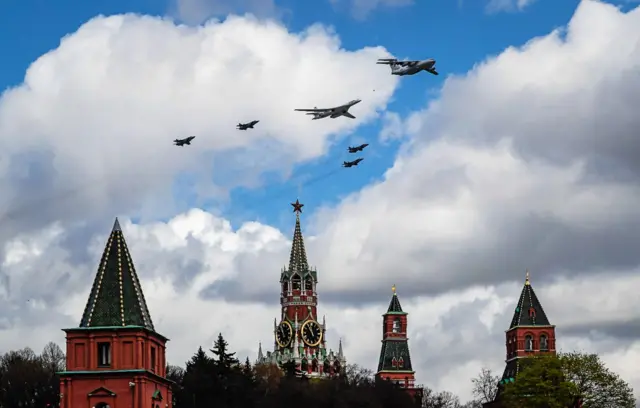Azovstal stronghold still holds - Kulebapublished at 17:44 BST 4 May 2022
Ukrainian Foreign Minister Dmytro Kuleba has rejected Russian claims that the southern city of Mariupol is now under full Russian control.
In a Twitter livestream, he said the Azovstal steelworks, which remains the last pocket of Ukrainian fighters in the city, still holds.
Russian forces strike the fighters and civilians there every day, he says, with endless attacks, including bombardments and artillery fire.
The recent evacuation of a group of civilians, under the auspices of the UN, from the industrial complex proves that "where there is a political will in Russia, this mechanism can work", he says.
"But we see that they are very reluctant to let people go, and every next move requires a lot of work... and a lot of pressure put on Russia," he adds.
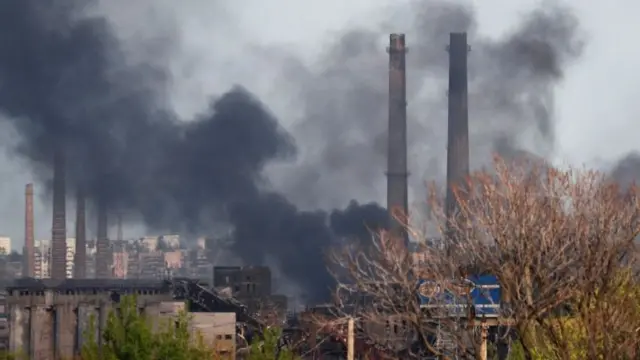 Image source, Reuters
Image source, ReutersImages, like this one taken on Monday, show smoke rising from the sprawling industrial complex
